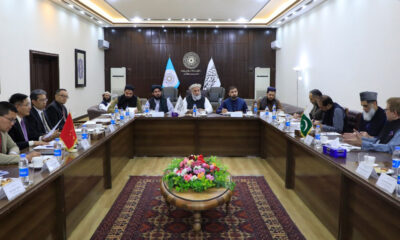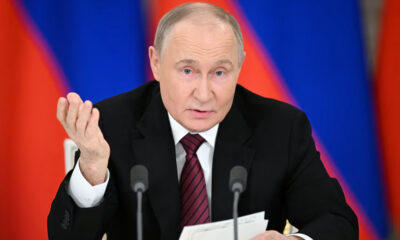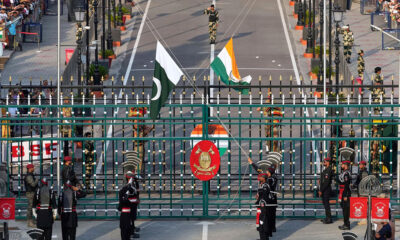Latest News
UN split over ban on IEA officials’ travel

Members of the United Nations Security Council remained divided Monday over whether to exempt some of the Islamic Emirate of Afghanistan’s (IEA) officials from a travel ban, diplomatic sources said.
Under a 2011 Security Council resolution, 135 IEA leaders are subject to a sanctions regime that includes asset freezes and travel bans.
Thirteen of them benefited from an exemption from the travel ban, renewed regularly, to allow them to meet officials from other countries abroad, AFP reported.
But this exemption ended last Friday, after Ireland objected to its automatic renewal for another month.
In June, the Sanctions Committee in charge of Afghanistan, comprised of the Security Council’s 15 members, had already removed from the exemptions list two IEA ministers responsible for education, in retaliation for the drastic reduction in the rights of women and girls, AfP reported.
Several Western countries would like to further reduce the list, according to diplomatic sources.
China and Russia, however, supported a regular extension of exemptions list.
“These exemptions are still just as necessary,” the Chinese presidency of the Security Council said last week, deeming it “counterproductive” to link human rights to travel issues for IEA officials.
Since last week, and again Monday, several compromise proposals that would more or less shrink the list of officials concerned, or the number of authorized destinations, have been rejected on both sides, according to diplomatic sources.
Discussions are expected to continue.
Pending a possible decision, none of the IEA officials on the sanctions list can travel, AFP reported.
That was of particular concern to the IEA’s foreign minister, Amir Khan Muttaqi, who has visited Qatar several times in recent months for diplomatic discussions and who was among the 13 exemptions.
In a statement posted Saturday on Twitter, a foreign ministry spokesman called on the Security Council “not to use sanctions as pressure tool” and said all sanctions against IEA officials should be lifted.
“If the travel ban is extended, it will create distance instead of promoting dialogue & engagement, an outcome that must be prevented,” the spokesman said.
Latest News
Afghanistan, Pakistan, China meet over expanding trade ties
Key topics on the agenda included the establishment of joint industrial parks in Afghanistan and the development of shared export processing centers

Senior officials from Afghanistan, Pakistan and China came together in Kabul to discuss the strengthening and expansion of trade relations between thethree nations.
The meeting was attended by Nooruddin Azizi, Acting Minister of Commerce and Industry of Afghanistan; Mohammad Sadiq, Special Representative of Pakistan; and Yue Xiaoyong, Special Representative of China.
Key topics on the agenda included the establishment of joint industrial parks in Afghanistan, the creation of special economic zones, and the development of shared export processing centers.
The three parties also explored the possibility of organizing trilateral trade exhibitions and setting up support centers for small and medium-sized enterprises (SMEs) in Afghanistan.
Officials noted that the facilitation of banking relations between the three countries was a fundamental requirement for enhancing economic cooperation.
The Afghan Ministry of Commerce and Industry stated that the meeting reflected the strong commitment of the participating countries to deepening regional trade and economic collaboration, expressing hope that the outcomes will yield positive benefits for all parties involved.
Latest News
Baradar meets Mes Aynak project director, urges quick construction start

Deputy Prime Minister for Economic Affairs, Mullah Abdul Ghani Baradar, on Saturday in Kabul met with Wang Zhicheng, the Director General of the contracting company for the Mes Aynak copper mine in Logar province.
During the meeting, Baradar described Mes Aynak as one of Afghanistan’s key economic projects and emphasized that the Islamic Emirate has provided all necessary facilities to support the contracting company in advancing the project, according to a statement from his office.
Baradar urged the company to begin the construction phase of the project as soon as possible and to address any issues causing delays.
Wang Zhicheng, Director General of MCC, praised the cooperation of the Islamic Emirate in furthering the project.
He mentioned that significant progress has been made in several aspects of the Mes Aynak project and expressed readiness to proceed with the next steps in coordination with the Ministry of Mines and Petroleum.
The Aynak copper mine contains millions of tons of copper and is believed to have the second-largest copper reserve in the world.
The contract for the Aynak copper mine was signed in 1999 with the Chinese company MCC for 30 years, but due to security issues and prolonged excavations of ancient relics in the area, the extraction of copper was delayed.
Latest News
Afghanistan, Pakistan and China agree to hold sixth round of FMs’ talks in Kabul
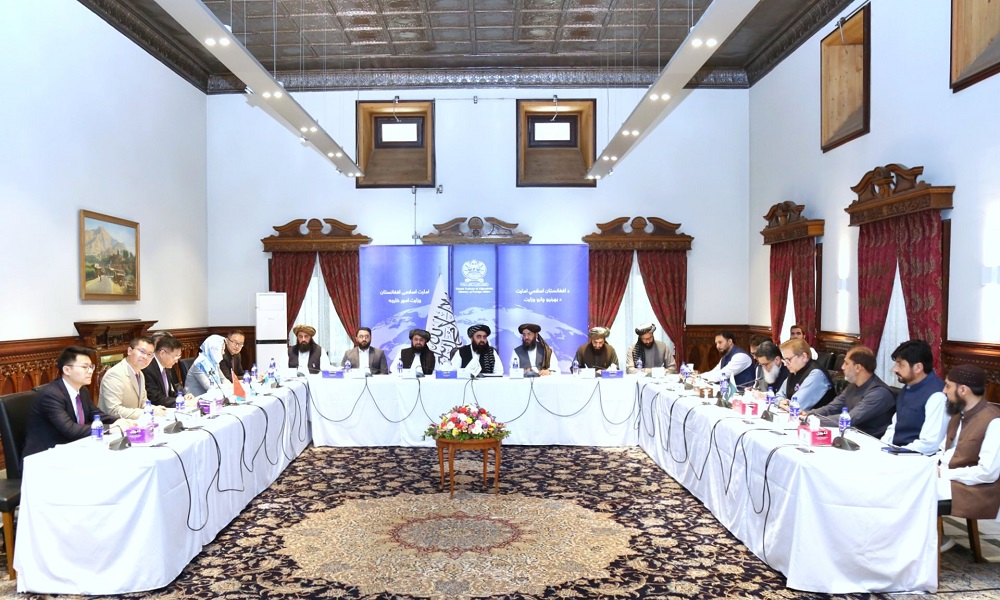
The special representatives of Pakistan and China for Afghanistan, along with Amir Khan Muttaqi, the acting foreign minister of Afghanistan, agreed in a trilateral meeting held on Saturday that the sixth round of foreign ministers’ talks among the three countries will be held in Kabul.
Zia Ahmad Takal, Head of Public Relations at the Ministry of Foreign Affairs, said in a statement that Muttaqi, Yue Xiaoyong, and Mohammad Sadiq also agreed to begin preparations for the upcoming meeting of the foreign ministers of Kabul, Islamabad, and Beijing.
Today’s trilateral meeting addressed follow-up issues related to the fifth round of foreign ministers’ dialogue among Afghanistan, China, and Pakistan, as well as discussions on political and economic cooperation among the three countries.
During this meeting, Muttaqi emphasized the importance of political and economic relations between Afghanistan and the two countries and expressed hope for “significant progress” in these areas in the future.
The special envoys from China and Pakistan reaffirmed their commitment to strengthening relations with Afghanistan based on good neighborliness and mutual respect.
Pakistan’s envoy Sadiq also said in a post on X page that today’s trilateral meeting provided an opportunity to align views on economic and security cooperation, as well as regional stability.
-

 Latest News5 days ago
Latest News5 days agoCabinet Meeting convened to discuss Afghanistan’s population census plan
-

 International Sports5 days ago
International Sports5 days agoIPL 2025: Seven teams fighting for four spots
-

 Regional4 days ago
Regional4 days agoAt least 26 civilians killed in Indian strikes on Pakistan: Islamabad
-
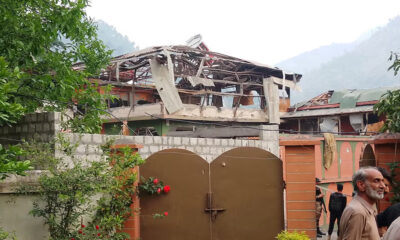
 Regional4 days ago
Regional4 days agoIndia strikes Pakistan over Kashmir tourist killings
-

 Science & Technology4 days ago
Science & Technology4 days agoSkype ends operations after 22 years of service
-

 Latest News4 days ago
Latest News4 days agoIslamic Emirate of Afghanistan ‘concerned’ over rising tensions between Pakistan and India
-

 World4 days ago
World4 days agoMacron to meet Syrian president on Wednesday, expected to discuss security
-
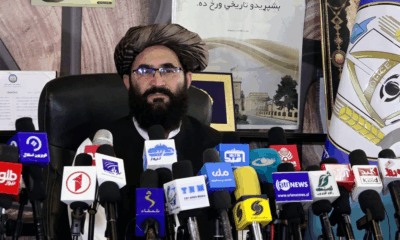
 Latest News4 days ago
Latest News4 days agoPassport Directorate earns nearly 13 billion AFN in one year


